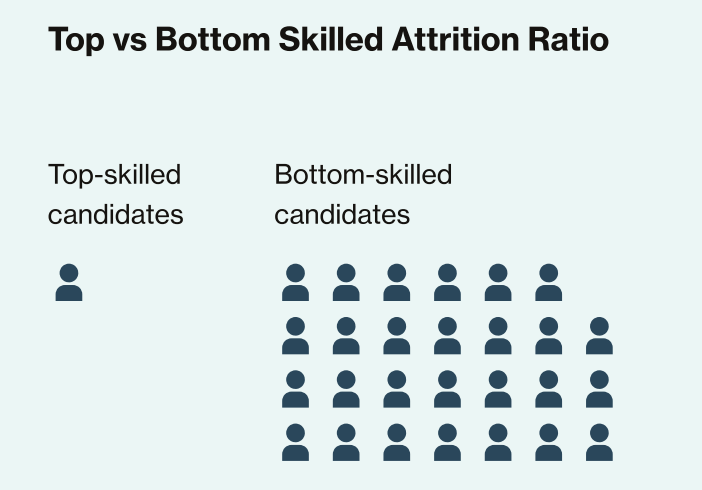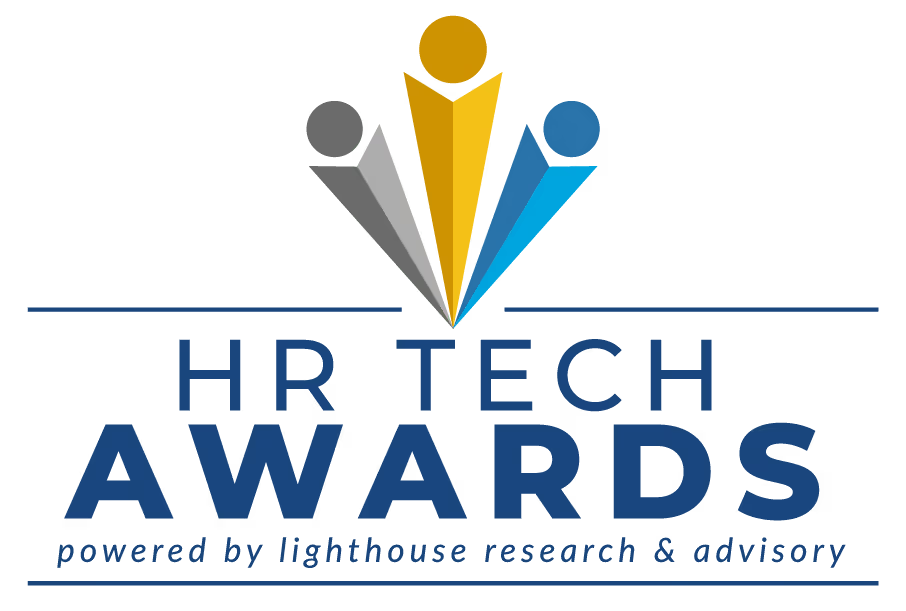
The most current call center statistics can help you make better business decisions. In this post, you’ll find 58 of the latest fact-checked stats to build a more targeted, effective strategy.
Understanding current trends, benchmarks, and performance metrics lets you align your operations with customer expectations. Use these valuable insights to improve agent performance, keep customers happier, and invest in the right technologies for long-term success.
The Current State of Call Center Performance
Despite the explosion of digital platforms, customers still rely on call centers. Many believe live phone support is the fastest way to resolve issues. But that preference comes at a high cost. Literally.
Meanwhile, problems that emerged during the pandemic (e.g., staffing shortages and long wait times) haven’t disappeared. If anything, they’ve become ongoing obstacles. Call and contact centers must rethink how they deliver quality service while managing costs.
Here are the stats on the current state of call centers:
- Live phone conversations are among consumers’ preferred support methods, with 71% of Gen Z to 94% of baby boomers likely to use them [McKinsey]
- Inbound calls are the most used contact channel for 53.1% of customers, with outbound also increasing (likely due to more callbacks to reduce wait times) [Call Centre Helper]
- A substantial 54% of customers believe a live agent call resolves problems fastest [UJET]
- The average cost-per-call metric hit a five-year high in 2024 [Call Centre Helper]
- There are 38.2% of callers who’ll wait less than a minute before abandoning [Call Centre Helper]
- Post-pandemic challenges from 2022 (a rising number of calls, high employee attrition, and talent shortages) persisted in 2024 [McKinsey]
Further reading: Learn more about how call center assessment tests can make hiring fairer and faster for potential agents and recruiters.
The #1 Priority Is Still Improving CX
Customer experience (CX) is an overwhelming priority for high-volume contact centers. And for good reason.
The best-performing companies handle large call volumes swiftly and make issue resolution feel effortless. However, many contact centers struggle to consistently deliver seamless customer journeys.
Meanwhile, omnichannel customer support is evolving. More companies are investing in multi-channel strategies (including messaging apps like WhatsApp). Yet, social media assistance is quietly declining.
As customer loyalty and expectations shift, the challenge isn’t just improving CX. It’s doing so in a sustainable and scalable way.
Let’s look at what the latest data tells us:
- Improving CX is the top focus for 86% of customer support leaders [Gartner]
- 40% of customers defect to other brands when companies don’t resolve issues the first time [SQM]
- A majority of 90% of customers agree that top-performing companies easily resolve service issues [Fullview]
- According to 67.74% of support managers, customers’ top expectation is quick resolution [Freshworks]
- There are 43.5% of contact centers sending customers post-contact surveys after every interaction, while 19.5% never ask [Call Centre Helper]
- 35% of companies plan to invest in adding more support options across communication channels [Zendesk]
- The number of companies offering social media as a support channel dropped from 3% to 2.1% year on year, while WhatsApp use increased from 19.1% to 21.5% [Call Centre Helper]
- For 46% of business leaders, a lack of CX leadership is the biggest barrier to staying consistent [8x8]
Further reading: Learn how frontline customer service teams set the tone for every company’s CX.
Skills-Based Hiring: Solving Attrition and Cost Challenges
Call center attrition has long been a costly problem, and the numbers paint a stark picture. But not all hires are created equal.
Data shows that highly skilled customer service reps are far less likely to leave. Skills-based hiring can also drastically reduce bad-hire rates.
The good news? More contact centers are finding ways to improve retention, and fewer report major issues. Hiring the right people with the right skills from the start reduces call center turnover and ultimately cuts costs.
Here’s what the most recent studies suggest about contact and call center recruitment:
- Replacing frontline employees (like call center reps) can cost organizations 40% of their salary [Gallup]
- Skills-based recruiting reduces bad hire rates by 400% in large enterprises (including call centers) [HiringBranch]
- Highly skilled customer service reps are 27.3 times less likely to attrit than lower-skilled hires [HiringBranch]
- For every top-skilled sales employee hired, 9.8 of bottom-skilled employees attrit [HiringBranch]
- The average attrition rate for call center agents is 38%, with the latest figures suggesting a range of 30–45% [SQM], [Nextiva]
- The average attrition rate for contact center agents in 2023 was 52% [Deloitte]
- Almost 40% of contact centers are struggling to turn poor attrition rates around [Call Centre Helper]
- The number of contact centers without attrition issues has risen from 23.4% to 37.6% year on year, while those with problems have dropped from 56.1% to 42.9% [Call Centre Helper]
Further reading: Learn how open-ended chat simulations measure agents’ soft skills and critical thinking abilities in a new, engaging way.
Career Growth Drives Retention in Contact Centers
Improving retention isn’t just about offering better pay. When contact center managers don’t know how to motivate their teams, frontline employees disengage or leave.
However, investing in clear career progression paths and training opportunities is gaining momentum.
Companies that prioritize upskilling and reskilling lower attrition and achieve more of their strategic goals. And with most team members eager to learn and adapt, the demand is there. The real challenge is whether contact centers are willing to meet it.
Here’s what the latest data suggests about contact center operations:
- Just over half (55%) of frontline workers considered quitting their jobs last year [Quinyx]
- Among working professionals, 95% say they want remote work (either fully remote or hybrid) [FlexJobs]
- 16% of contact center professionals feel leaders (including call center managers) don’t know how to engage their teams [Call Centre Helper]
- Companies investing in progressing agents’ careers achieve 23% more of their strategic goals than companies still in the planning stages [Deloitte]
- Contact centers that invest in agent career progression report 15% lower annual attrition than those that don’t [Deloitte]
- 77% of workers feel ready to adapt to new ways of working [PwC]
- Most employees (72%) are excited about learning and career growth opportunities in their roles [PwC]
Further reading: Learn how to reduce call center turnover rate and keep team members happy.
AI Automation: High Hopes and Challenges
Artificial intelligence (AI) is reshaping contact centers. But the road to automation is anything but smooth. While many have or are developing AI strategies, cost remains the biggest roadblock.
Even when companies implement technology, it doesn’t always optimize experiences as they hope.
Still, AI isn’t just hype. Companies using conversational AI report major efficiency gains—from resolving issues faster to reducing agent effort. However, balancing automation and meeting customer expectations remains challenging.
Here’s what the most recent data suggests about contact center technology:
- Reportedly, three in five contact center leaders haven’t been able to replace incoming calls with cheaper or more convenient channels [Deloitte]
- Out of the four in five contact centers that have a “channel-steering strategy,” 36% are successfully deflecting phone calls to other channels [Deloitte]
- For every six contact centers, one now uses generative AI capabilities [Deloitte]
- Use of ChatGPT enhances operational efficiency for 21.9% of contact centers [Call Centre Helper]
- Nearly 70% of contact centers have an AI strategy or are working on one [Call Centre Helper]
- The cost of implementing AI is the biggest barrier to adopting it in 29.3% of contact centers [Call Centre Helper]
- Among 80% of customers who say using chatbots increases frustration levels, 72% think they’re a waste of time [UJET
- Contact center and IT providers using conversational AI and chatbots say they have:
- Improved agent productivity (94%)
- Resolved customer issues faster (92%)
- Reduced agent effort (87%)
- Lowered costs by increasing agent efficiency (65%) [8x8]
- 60% of customers prefer to wait in a queue to speak with a human agent immediately (rather than a chatbot) [Userlike]
- If 28% of customers can’t find self-service options, they’ll likely quit trying to solve a problem rather than reach out to an agent [Gartner
- The top six technologies used in contact centers are:
- Headsets (97%)
- Call recording (94.6%)
- Automatic call distribution (ACD) or call routing (93.4%)
- Interactive voice response, or IVR (89.9%)
- Performance management/quality monitoring (84.9%)
- Knowledge base (75.5%) [Call Centre Helper]
- The top three most sought-after contact center technologies are:
- Customer interaction and speech analytics (95.7%)
- Predictive routing (91.4%)
- Chatbots (90.1%) [Call Centre Helper]
- 76% of agents say they are overwhelmed by multiple systems, workflows, and information [Talkdesk]
Further reading: Learn six more statistics about how AI is impacting talent acquisition and modern hiring.
Crucial Contact and Call Center Metrics (With KPI Benchmarks)
Knowing which metrics truly impact operations is key to measuring success. Average times for holding and solving problems all impact customer retention. Yet, many companies still struggle to improve these numbers while balancing call center efficiency.
Customer satisfaction (CSAT) remains a core performance metric. But, interestingly, Net Promoter Score (NPS) is losing relevance for many contact centers.
The takeaway? Real-time metrics should guide better service, not just look good on a dashboard.
Here are the latest stats about contact center KPIs:
- Over a third (35.96%) of customer support managers monitor KPIs and performance metrics daily [Freshworks]
- Six of the most crucial contact center metrics are:
- CSAT (98.8%)
- CX (97.5%)
- Chat or call abandonment rate (97%)
- Service level (96.4%)
- Quality scores (92.7%)
- FCR—first contact resolution (96.3%) [Call Centre Helper]
- Based on post-call surveys, the average FCR rate for call centers is just under 70% [SQM]
- A “good” FCR rate is 70–79%, while a “world-class” rate is 80% or higher [SQM]
- The three top reasons that impact high FCR rates are:
- Organizational policies and procedures (49%)
- Agent mistakes (38%)
- Customer miscommunication (13%) [SQM]
- The global average speed of answer (ASA) time is 28 seconds [Call Centre Helper]
- The average contact center hold time is 16.9 seconds [Talkdesk]
- A good average handle time (AHT) is around six minutes [Zendesk]
- The maximum occupancy rate (how much time advisors spend on call-related activities) should not exceed 85–90% to avoid burnout [SQM]
- The industry average for maximum occupancy rate is 83% [SQM]
- The average CSAT benchmark score for the call center industry is 78% [SQM]
- A “good” customer satisfaction score for call centers is between 75–84% [SQM]
- A “world-class” CSAT score is 85% or higher (but only 5% of call centers can achieve this) [SQM]
- Customers value first-call resolution (28.4%) and knowledgeable advisors (23.4%) most [Call Centre Helper]
- “Advisor empathy” is the most measured attribute by 64.5% of contact centers on digital channels [Call Centre Helper]
- Less than half of contact center survey respondents (40.7%) rate NPS as “very important” anymore [Call Centre Helper]
Wrapping Up Contact and Call Center Statistics
Contact and call center operations constantly evolve. Success depends on staying informed. These fact-checked stats highlight the most significant challenges and opportunities in hiring, retention, AI adoption, and performance metrics.
The key takeaway? Data should drive decision-making. Whether investing in agent career growth or refining call center software, the right insights can help you offer stronger, more efficient support.
Wow, that was a lot of data! To help contact center leaders, check out our selection of what we consider to be the top stats and insights broken down by category below!

Image Credits
Feature Image: Via Unsplash/Museums Victoria












































.jpg)

.jpg)



























.avif)




.avif)

















.webp)





.svg)
